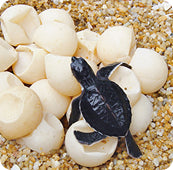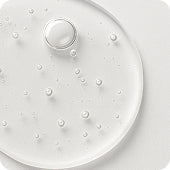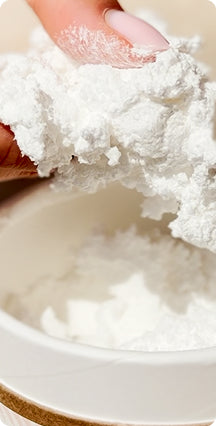What you should definitely know about plastic
What you should definitely know about plastic

Plastic in a fully synthetic form has been around since 1907. Since then it has been a very popular material because it is cheap, durable, light and serves as protective packaging. But plastic is harmful to the environment - and that's no longer a secret. Plastic only "decomposes" after an estimated 400 years. In fact, it only breaks down into microplastics (<5mm) and remains in nature in this form forever in tiny particles. Plastic is, as the name suggests, an artificial substance that does not occur in nature and therefore does not completely decompose. This means that every piece of plastic that has ever been made still exists in some form on earth.
The problem with microplastics
As already mentioned, plastic only breaks down into tiny pieces and never completely disappears. We are talking about microplastics here. Very few sewage treatment plants can filter this out, so it gets into our environment. Animals ingest this, which can have serious health consequences for them and even lead to death. And we also ingest microplastics: a study showed that people ingest up to 5g of microplastics every week. That's the weight of a credit card! Do you already know the 10 main causes of microplastics? Introducing them:


That's how long it takes for nature to decompose waste


In Germany alone, a total of 6.2 million tons of plastic waste are generated every year. 60% of this can be traced back to packaging, i.e. around 3.2 million tons. Of this, about 49.7% is recycled, another 49.7% is incinerated. Around 38.5 kg of packaging waste is generated per capita in Germany every year. Our consumption of plastic has increased by 105% in 22 years.
Unfortunately, not all plastic is recyclable. Black plastic, for example, poses a major problem here: Recyclable plastic is identified by sensors using reflected light - black plastic is often not recognized by sorting systems. Therefore, black plastic is usually sorted out as residual waste and burned. But even the plastic that is theoretically recyclable is rarely actually recycled. In fact, not even 16% of the plastic waste generated in Germany is recycled. Most of it is incinerated because it's cheaper. In addition, plastic loses quality with each recycling. In principle, only pure plastic can be recycled. Recycling codes help here, providing information on how the packaging can be properly recycled. In addition, the material is recognizable through them. There are recycling codes 01-07:
· Polyethylene terephthalate (PET) - recycling code "01"
· Polyethylene (PE) – recycling code "02" and "04"
Polyvinyl chloride (PVC) – recycling code "03"
Polypropylene (PP) – recycling code "05"
Polystyrene (PS) – recycling code "06"
· 07 O – O (Other) stands for “other plastics” (e.g. PC = polycarbonate or ABS = acylonitrile butadiene styrene copolymer)
In order to relieve the burden on the environment, a lot of hope is placed in the recycling of plastics. But recycling plastic is time-consuming and expensive. And even if recycled plastic protects the environment, the preventive avoidance of plastic waste is the top priority.
7 simple tips to avoid plastic
1. Always take a cloth bag with you
2. Drink tap water - this saves money as well as (plastic) waste. Did you know that mineral water from plastic bottles often contains pollutants that we absorb when we drink it?
3. Buy bulk fruit and veg
4. Instead of disposable products, use reusable items and then use them for as long as possible
5. Pay attention to ingredients in cosmetics
6. Misappropriation: You can use disposable glasses for storage or as drinking glasses, store your makeup in old packaging or let orange peel dry and set it up as a room fragrance
7. Always only buy as much as you really need and keep an eye out for second hand
If you would like to be informed directly about the latest blog posts, please follow us Instagram ! :-)











